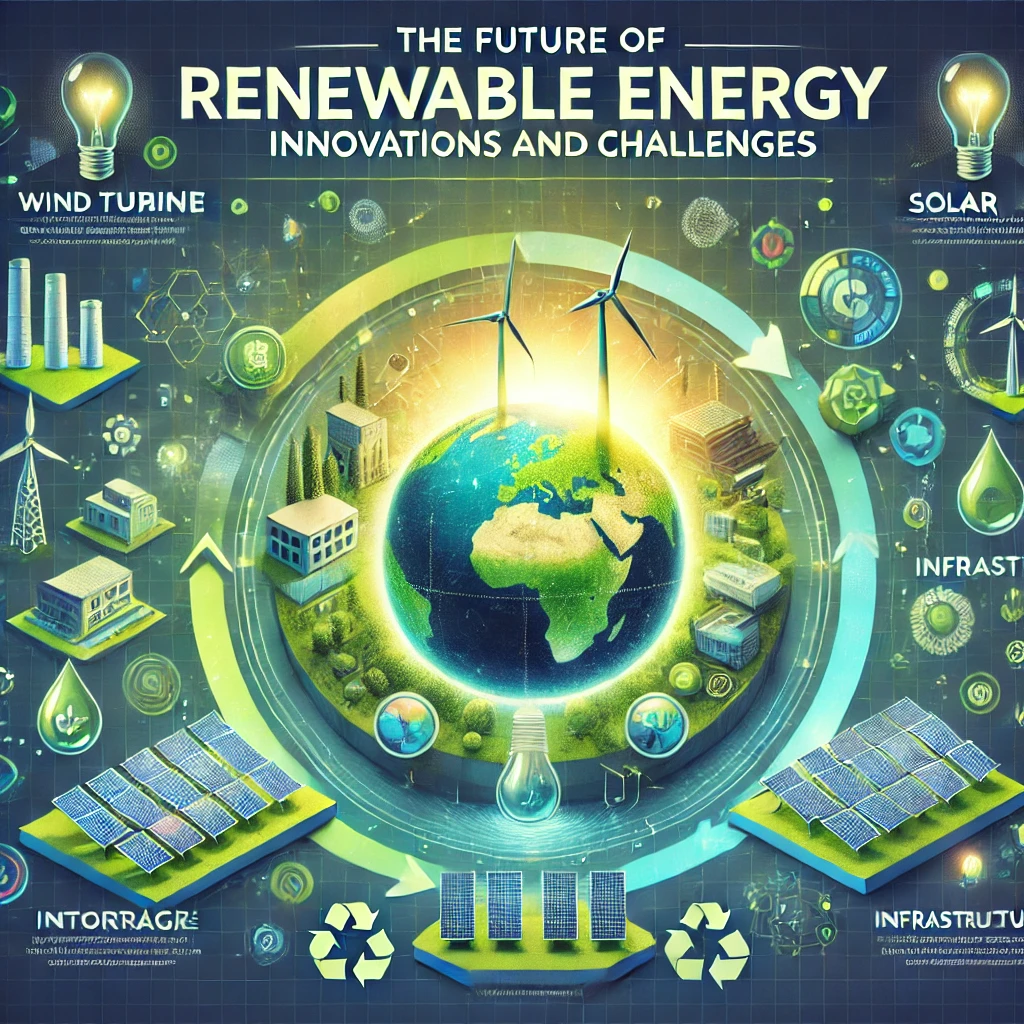The Growing Importance of Renewable Energy
As the global climate crisis intensifies, the need for sustainable energy sources has never been more critical. Renewable energy, derived from natural sources such as sunlight, wind, and water, is at the forefront of efforts to reduce greenhouse gas emissions and combat climate change. By 2025, renewable energy is expected to account for a significant portion of the world's energy production, driven by technological advancements and policy initiatives.
The transition from fossil fuels to renewable energy is not just about environmental sustainability; it also offers economic benefits. Countries investing in renewables are creating jobs, reducing energy costs, and fostering energy independence. However, this transition also presents challenges, including infrastructure limitations and the need for technological innovation.
Innovations in Renewable Energy Technologies
Recent years have seen groundbreaking innovations in renewable energy technologies, pushing the boundaries of what is possible. Here are some key advancements:
- Next-Generation Solar Panels: The development of perovskite solar cells has revolutionized the solar industry. These cells are more efficient and cost-effective than traditional silicon-based panels, making solar power accessible to a wider audience.
- Offshore Wind Farms: Offshore wind energy has gained momentum with the creation of floating wind turbines. These turbines can operate in deeper waters, harnessing stronger and more consistent wind resources.
- Energy Storage Solutions: Advanced battery technologies, such as solid-state batteries, are addressing the intermittent nature of renewables. These batteries offer higher energy density and longer lifespans, improving energy reliability.
- Green Hydrogen: Hydrogen produced using renewable energy is emerging as a clean fuel alternative for industries and transportation. Green hydrogen projects are expanding globally, offering a pathway to decarbonize sectors that are challenging to electrify.
Challenges Facing Renewable Energy Adoption
Despite the remarkable progress, several challenges remain in the widespread adoption of renewable energy:
- Infrastructure Limitations: Transitioning to renewable energy requires significant upgrades to existing energy grids. Many regions lack the infrastructure needed to integrate large-scale renewable energy projects.
- Intermittency Issues: Solar and wind power are inherently variable, depending on weather conditions. Developing efficient energy storage systems and backup power solutions is crucial to ensure a stable energy supply.
- High Initial Costs: While the cost of renewable energy technologies has decreased, the upfront investment remains a barrier for many countries and businesses. Financing models and subsidies are essential to encourage adoption.
- Land and Resource Use: Large-scale renewable energy projects often require significant land and water resources, raising concerns about environmental and social impacts.
The Role of Policy and Collaboration
Government policies and international collaboration play a vital role in accelerating the adoption of renewable energy. Many countries are implementing policies to incentivize renewable energy projects, such as tax credits, subsidies, and feed-in tariffs. These measures encourage investment and innovation in the sector.
Additionally, global partnerships and agreements, such as the Paris Agreement, are driving countries to commit to ambitious renewable energy targets. Cross-border collaborations are fostering the exchange of knowledge, resources, and technologies, enabling countries to overcome common challenges.
The Future of Renewable Energy
The future of renewable energy is bright, with exciting possibilities on the horizon. Innovations in artificial intelligence and machine learning are being used to optimize energy systems, predict demand, and improve efficiency. The integration of blockchain technology in energy trading is creating new opportunities for decentralized energy markets.
Furthermore, advancements in bioenergy, wave energy, and geothermal power are diversifying the renewable energy mix, reducing reliance on any single source. These technologies are expected to play a significant role in achieving global energy goals and mitigating climate change.

0 comments
No comments yet. Be the first to comment!
Your comment